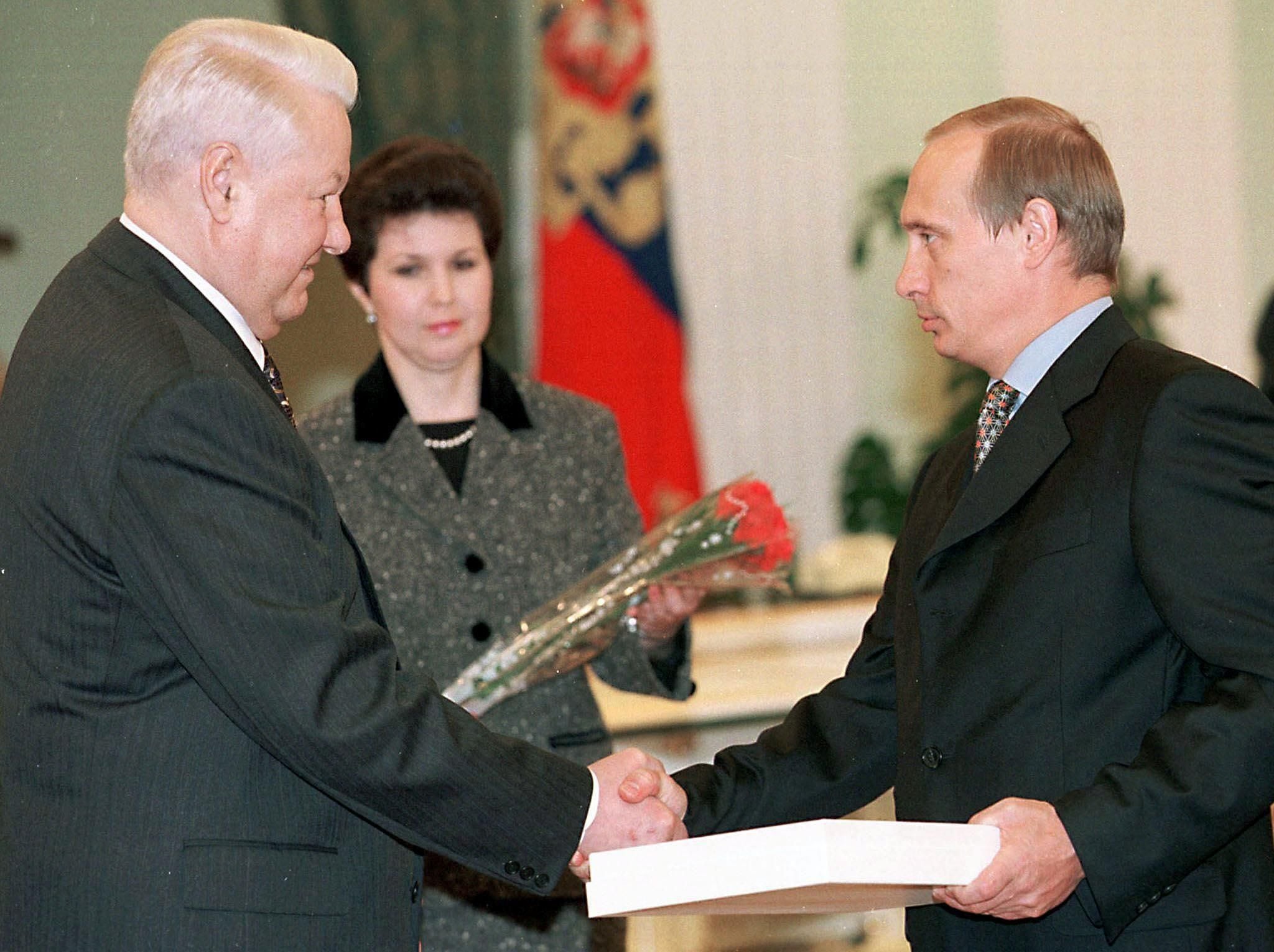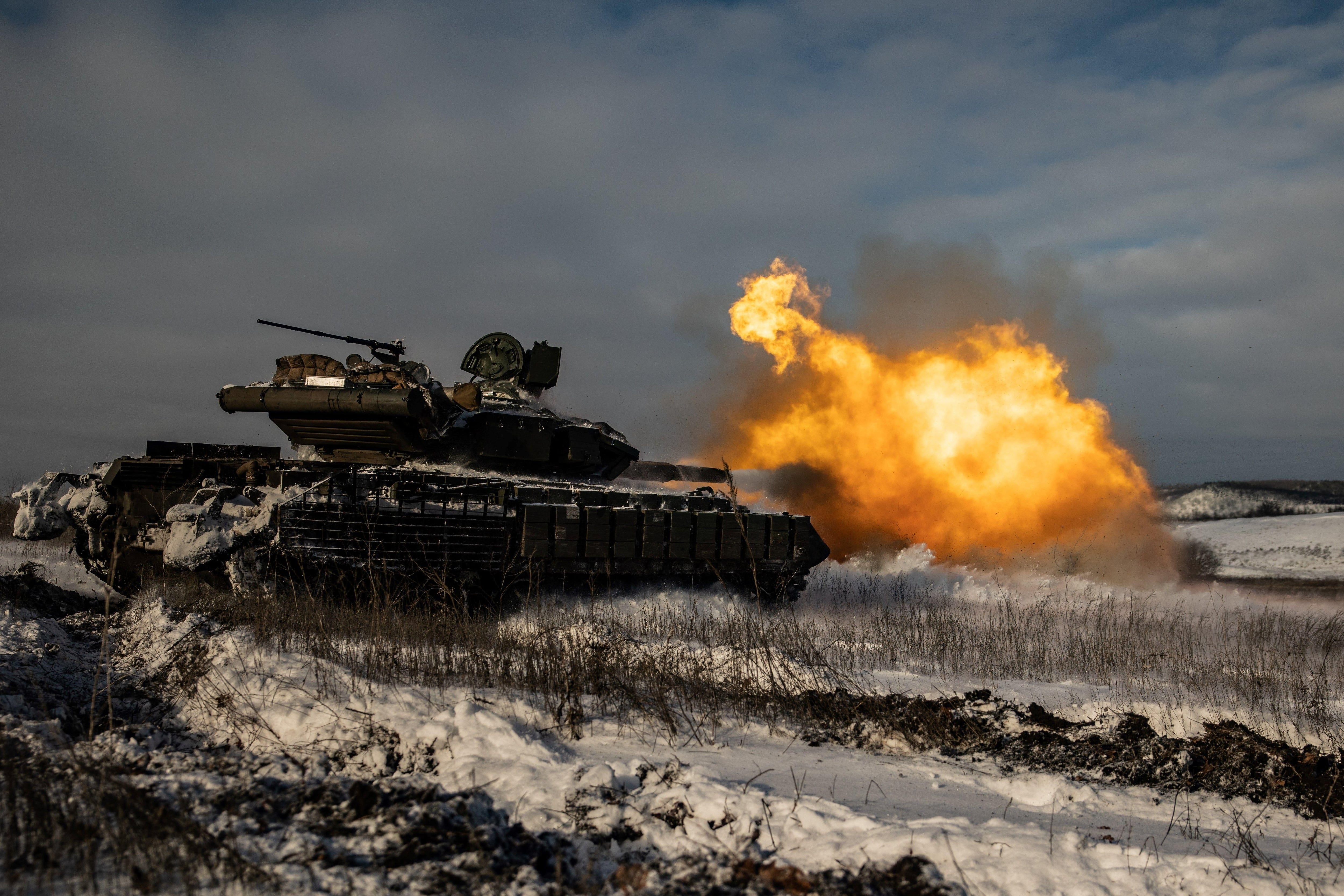When Russia faced increasing obstacles in invading Ukraine, some began to raise the idea that its president, Vladimir Putincould lose the power it has wielded for a quarter of a century.
“If the West stands firm, Putin’s regime will likely collapse in the near future,” wrote former chess champion Garry Kasparov and former tycoon Mikhail Khodorkovsky, two Russian critics of the Kremlin, in Foreign Affairs magazine in January 2023 .
LOOK: The powerful stimulant fighter pilots take to stay awake and alert
Even US President Joe Biden had previously said that Putin “cannot remain in power”, something that led the White House to immediately deny that it was calling for a change of government in Russia.
However, since then Putin’s troops have maintained control of an important part of Ukraine, at times resuming the offensive, and the Russian economy has resisted international sanctions for the war, growing even faster than those of the G7.
Far from having lost control of his country, the Russian president appears to have consolidated it and has just won an election held over the weekend with his main opponents exiled, imprisoned or prevented from participating.
Putin did it 87.8% of the votes with 60% of the votes counted and a participation of 74.22% of the electorate, 7 points more than in the last elections of 2018.
“No matter how much they tried to scare us, to suppress our will, our conscience, no one has succeeded in history. They have failed now and they will fail in the future,” the Russian leader said in a speech after confirming his victory. .
He also expressed “special thanks to our warriors on the line of contact,” referring to the front lines of the war in Ukraine.
In second place was communist Nikolai Kharitonov with just under 4%, while former parliamentary speaker Vladislav Davankov and nationalist Leonid Slutsky took third and fourth place. All of them are politicians close to Putin.
At least 80 people were arrested for participating in protests in several cities during election day on Sunday.
At age 71, the Russian president is expected to begin a six-year term until 2030 and could be re-elected again until 2036, after reforming the rules that limited the time he would remain in office.
To complete your next step would surpass Josef Stalin – who ruled for 31 years – as the longest-serving Russian leader in two centuries.
Some experts have warned that Putin may have recently reached his strongest moment and it is expected that this re-election will be used by his government to show him as a popular leader, with little internal criticism.
But is Putin really more powerful than ever?
Promotion and permanence
When Putin ascended to the top of the Kremlin in 1999, chosen by President Boris Yeltsin as his successor, he was practically unknown within Russia itself.
No one seemed to take the chance that this former member of the Soviet KGB security service would remain in office to this day.
However, Putin’s popularity began to grow due to his firm response to the Chechen separatist crisis and the expansion of the Russian economy, as well as his greater control of the media that began to project him as a national leader.
His victory in the 2000 elections was followed by another in 2004, after he showed strength to the powerful Russian oligarchy by harshly confronting Khodorkovsky, who was accused of fraud and sent to prison with his assets confiscated.

In the 2008 elections, prevented by the Constitution from running for a third consecutive term, Putin left his ally Dimitri Medvedev as his successor. But instead of stepping away from power, he became prime minister and returned to the presidency in the 2012 elections, with terms extended to six years.
Afterwards, the Russian president was considered the most powerful person in the world by Forbes magazine for four consecutive years (from 2013 to 2016) and assumed an increasingly defiant attitude towards the West.
Russia seized the Crimean peninsula from Ukraine in 2014, was accused by the United States of interfering in the 2016 elections that gave Donald Trump victory, and invaded Ukraine in 2022.
“There are many reasons why (Putin’s) regime can be maintained,” explained Marlène Laruelle, director of the Institute of European, Russian and Eurasian Studies at George Washington University, in an interview with BBC Mundo last year, on the contrary than I believed. a collapse in the Kremlin was possible.
Among these reasons, he mentioned the loyalty of the Russian security services to Putin, the support of a part of the population for his argument that Russia is threatened by the West and is fighting an existential struggle, and the fact that those who oppose he or she in conflict is prevented from expressing themselves freely or chooses to emigrate.
Following the death in August of Yevgeny Prigozhin, head of the Wagner mercenary group who led a mutiny against Russian military leadership, “the consensus of experts appears to be that Putin is stronger than ever,” Thomas Graham said in October in a communicated. Russia expert at the Council on Foreign Relations, an international think tank in the US.
However, some believe that something different has been exposed in Russia in recent weeks.
“Indication of your weakness”
Kimberly Marten, an expert on Russia and international security at Columbia University’s Barnard College, believes that “the elections themselves will not matter much to Putin’s strength.”
“But the electoral process raised an indication of its weakness”, says Marten in statements to BBC Mundo.
For example, he highlights that anti-war politician Boris Nadezhdin obtained a series of signatures (according to him, more than 100,000) in favor of being able to run as a presidential candidate, something that was ultimately denied.
Marten believes that “this new information about the unpopularity of the war in Russia could make it difficult for Putin to order additional mobilization.”
The bans on opposition candidates and the Kremlin’s control of the Russian political system also delegitimized the elections as a barometer of Putin’s popularity.
“It is absolutely impossible to say that our presidential elections are fair and free,” Nadezhdin told the BBC before the vote.
On the other hand, the crowds that turned out to pay tribute to Russia’s most notorious opponent, Alexei Navalny, after his death in an Arctic prison in February, showed that there is a mass of citizens in the country willing to protest despite the wave of repression.
In their songs they exclaimed things unheard of on Russian streets since the invasion of Ukraine, such as “Freedom for political prisoners!” and “No to war!”
This internal challenge to Putin joins the one that Ukraine still poses to him with the help of the West.
It is true that the duration of the conflict can cause fatigue on both sides of the North Atlantic.
But it is also clear that some presidents are far from showing Putin the fear and respect he seeks to instill: Biden called him “crazy from the HDP” last month and Frenchman Emmanuel Macron has said he does not rule out sending troops to Ukraine to prevent Russia’s victory. the war.
The Kremlin warned that sending Western troops to Ukraine would provoke a direct conflict with NATO, whose members distanced themselves from Macron’s statements.
In any case, the prolongation of the war also represents a risk of wear and tear for Putin, not only due to the possible repetition of bombings in Russian cities such as those in Belgorod over the weekend, which forced the closure of businesses and schools and the authorities. attribute to Ukraine.

Analysts exclude that Russia can sustain its mobilized war economy in the long term, with an increase in military and security spending to the detriment of state plans to support the population.
Putin and Moscow have become more dependent on China, which along with India has begun buying much of Russian oil amid Western sanctions over the invasion of Ukraine.
In a country like Russia, where the threads of power are woven in the shadows, it is impossible to rule out unexpected movements that maintain their leader, as demonstrated by the rebellion of Prigozhin, his once trusted man, now dead.
For now, after the weekend’s special elections, there is nothing to indicate that the war unleashed by Putin is pushing him towards the abyss, as some have supposed. But the limits of his power were revealed.
Source: Elcomercio
I am Jack Morton and I work in 24 News Recorder. I mostly cover world news and I have also authored 24 news recorder. I find this work highly interesting and it allows me to keep up with current events happening around the world.

:quality(75)/cloudfront-us-east-1.images.arcpublishing.com/elcomercio/FBNMJSWBNVBJRI7EGSAKUBT3Y4.jpg)





